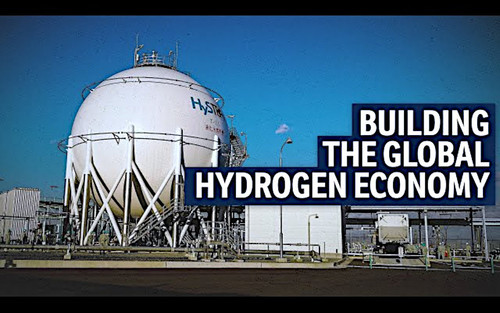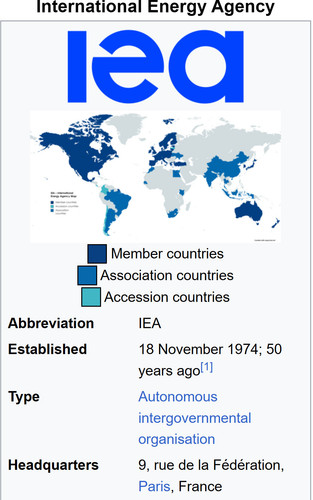Welcome to DU!
The truly grassroots left-of-center political community where regular people, not algorithms, drive the discussions and set the standards.
Join the community:
Create a free account
Support DU (and get rid of ads!):
Become a Star Member
Latest Breaking News
Editorials & Other Articles
General Discussion
The DU Lounge
All Forums
Issue Forums
Culture Forums
Alliance Forums
Region Forums
Support Forums
Help & Search
Environment & Energy
Related: About this forumLow-emissions hydrogen projects are set to grow strongly despite wave of cancellations and persistent challenges: IEA

Low-emissions hydrogen projects are set to grow strongly despite wave of cancellations and persistent challenges
IEA.org | 12 September 2025
Amid steady rise in world hydrogen demand, global pipeline for low-emissions projects has shrunk, but robust expansion to 2030 still expected
Despite a recent wave of project delays and cancellations, low-emissions hydrogen production is still set to see robust growth to 2030 as the nascent sector continues to develop – though at a slower pace than the burst of announcements earlier this decade had previously signalled – according to the latest IEA analysis.
The 2025 edition of the IEA’s annual Global Hydrogen Review, published today, tracks developments across the hydrogen sector worldwide, with particular attention to the fast-moving developments in the emerging technologies around low-emissions hydrogen.
Worldwide hydrogen demand increased to almost 100 million tonnes in 2024, up 2% from 2023 and in line with overall energy demand growth, according to the report. The vast majority of this was met by hydrogen produced from fossil fuels without measures in place to capture associated emissions. Sectors that have traditionally used hydrogen, such as oil refining and industry, remained the biggest consumers. ..more
https://www.iea.org/news/low-emissions-hydrogen-projects-are-set-to-grow-strongly-despite-wave-of-cancellations-and-persistent-challenges

The naysayers. Luddites and anti-greens have lost and will continue to lose the battle to stop a H2 green future. Bank on it.
1 replies
 = new reply since forum marked as read
Highlight:
NoneDon't highlight anything
5 newestHighlight 5 most recent replies
= new reply since forum marked as read
Highlight:
NoneDon't highlight anything
5 newestHighlight 5 most recent replies
Low-emissions hydrogen projects are set to grow strongly despite wave of cancellations and persistent challenges: IEA (Original Post)
Caribbeans
Sep 22
OP
caraher
(6,351 posts)1. Growing "strongly" is pretty vague and misleading
What they mean by growing "strongly" is that they expect this part of the hydrogen sector will grow substantially compared with it's currently utterly negligible levels.
As noted in the OP, annual global demand for hydrogen is currently about 100 million tonnes. Later in the same article, they note:
New analysis of announced projects finds that low-emissions hydrogen production by 2030 now has the potential to reach up to 37 million tonnes per year. That is down from a potential 49 million tonnes per year, based on announced projects a year earlier.
So their *best* case scenario is that 2/3 of hydrogen production in 2030 will be from fossil fuels without measures in place to capture associated emissions. That would assume flat hydrogen demand and every project on the books coming to completion. IEA also pretty much says that's not going to happen - and note that basically a quarter projects expected last year to come online by 2030 have been canceled.
IEA also includes assessments of the likelihood of achieving that 37 million tonne target in their new hydrogen tracker tool. Click "Projects" above the map that the page defaults to and you wil learn:
- Essentially all of the "low carbon" hydrogen production today is from fossil fuels with carbon capture
- Roughly half of the potential growth is for projects rated as "low" or "uncertain" likelihood of completion
- About 80% of the potential growth projects are in either in "Concept" or "Feasibility study" stages
The IEA Global Hydrogen Review 2025 document, from which the news release draws, states
For the first time, this report systematically assesses the likelihood of announced projects going ahead by 2030. This analysis suggests that 10 Mt of low-emissions hydrogen production is almost certain or has strong potential to be operational by 2030, if the right policy efforts to stimulate demand in traditional applications and emerging sectors are implemented. However, another 19 Mt is from projects that have low potential or are uncertain to be operational by 2030 considering the short time remaining for those projects to materialise.
A more realistic estimate is that hydrogen from low emissions sources (electrolysis and carbon capture) in 2030 will be 1/10 of current hydrogen demand. (And hydrogen advocates want that demand to grow; currently the growth rate is 2% per year.) So the IEA basically tells us that hydrogen continues to be a dirty energy source over at least the next five years.
Other IEA analysis anticipates renewables dedicated to hydrogen production will account for maybe 1% of total renewable energy production (check out the capacity growth charts on the Renewable Energy Progress Tracker). Note that this isn't even 1% of energy use - it's 1% of renewables.
Bottom line: there is no IEA-supported scenario by which hydrogen will be a significant contributor to de-carbonizing the energy system in the next five years, and little support for that changing radically in the next 10 or 15 years, either.